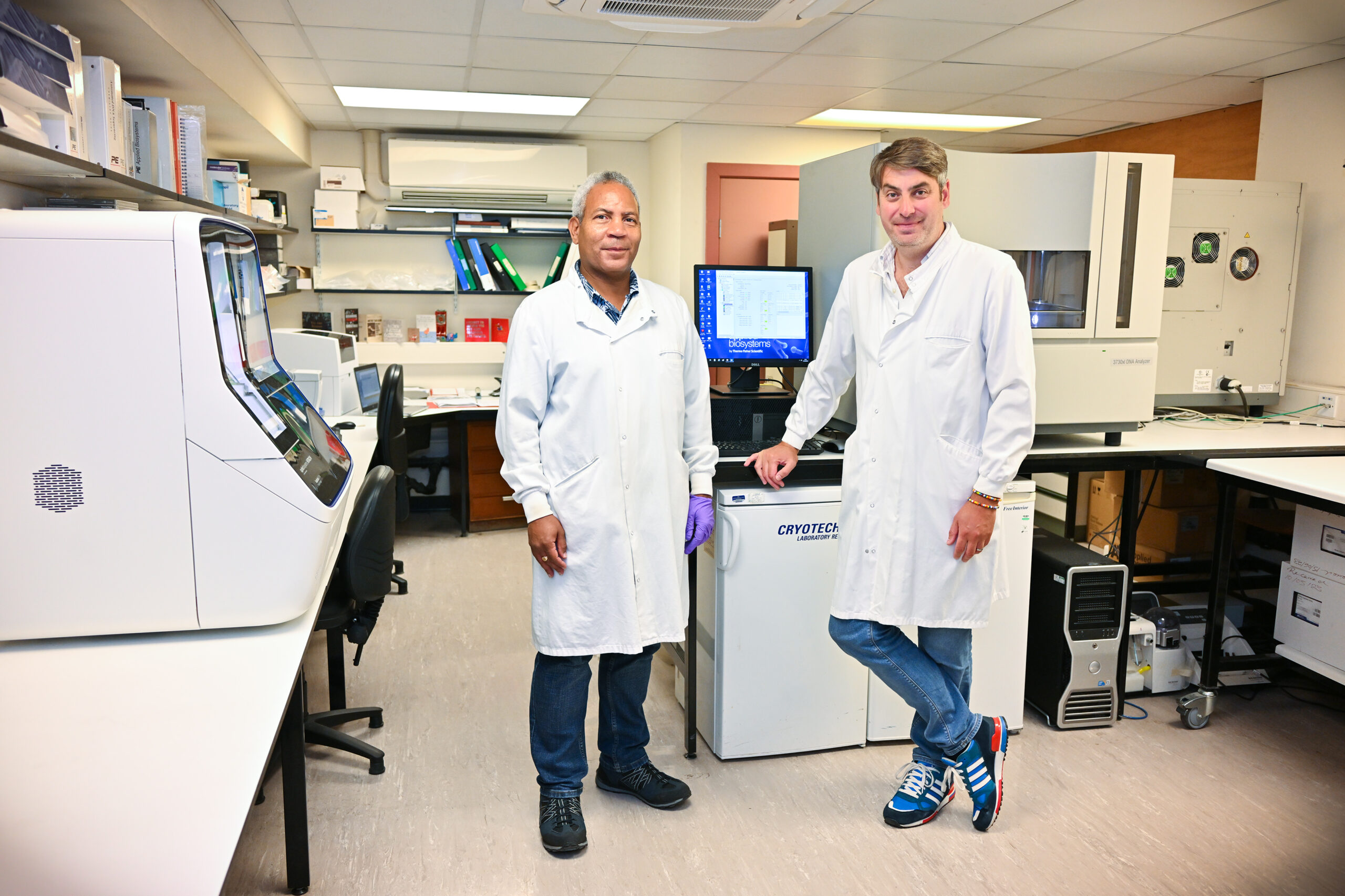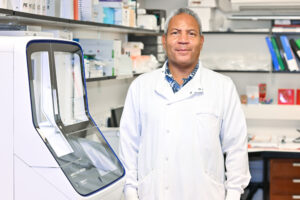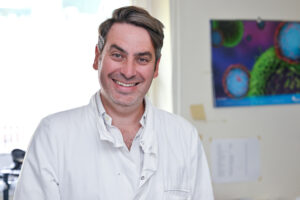Technician Week 2024: Jeff Joseph and Stephen Brown in the DNA sequencing facility

Tucked away on the ground floor of the West Building, Stephen Brown and Jeff Joseph are the experts behind the in-house DNA sequencing facility providing Sanger sequencing to all IGC researchers and their collaborators.
Facility Manager Stephen started working at IGC 20 years ago after completing his Biological Sciences degree and taking time out to travel in Australia.
“I started as a technician working under Stewart McKay,” he says. “As the years went on, I became more and more responsible for the facilities, working with service contractors on the instruments and maintaining the day-to-day running of the facility.
“When Stewart retired there was an opportunity for me to become the manager. I’m fully responsible for the running of the facility, the budgets, the service contracts, and dealing with engineers who come in to service and fix the instruments we have.”
Sequencing Technologist Jeff’s background is in research – he came to the IGC from Royal Botanic Gardens Kew in London where he worked for 20 years in a variety of jobs.
“I started my career at Kew Gardens straight after university as a lab manager/phylogenetics research assistant,” he says. “After five years, I did a phylogenetics secondment with Imperial College London for three years, and returned to Kew where I joined a new group doing population genetics research for about six years. When my supervisor left, I moved laterally into cytogenetics and plant breeding for another six years.”

Jeff Joseph
Stephen and Jeff have 200 regular users in the IGC and wider community and in addition to providing a high through-put facility processing hundreds of samples a day, they offer a troubleshooting service and provide advice to researchers on how to achieve the best results for their projects.
Stephen starts the process by cleaning the samples in his lab, which involves removing excess salts and proteins using magnetic beads and alcohol.
The purified samples are then passed to Jeff further down the corridor ready for DNA sequencing.
“Sanger sequencing is quite an old method now but it’s still really reliable, highly used and well thought of in molecular biology,” says Stephen. “It is still known as the gold standard of sequencing. If you want to check something, Sanger sequencing is the way to do it. It’s cheap and quick compared to next generation sequencing.”
Jeff adds: “Sanger sequencing is a way of sequencing a single target while next generation sequencing can produce millions and millions of sequences. It depends on your project’s focus. People still need single target sequencing to validate the accuracy of the results obtained from next generation sequencing. They work in tandem with each other.”
The team also offers DNA and RNA quality and quantitation services, human cell line authentication and can produce SNPs (single-nucleotide polymorphisms) and AFLPs (amplified fragment length polymorphism) – a PCR-based DNA fingerprinting technique.

Stephen Brown
For Jeff, talking through a project with a researcher and working out the best way to get results is his favourite part of the job.
“I have a background in research and I have an interest in what’s going on in the field of genetics and DNA manipulation. It’s interesting to hear what people are doing and interesting to teach them things from my experience and to learn at the same time.”
Stephen also enjoys interacting with a variety of people as part of his work.
“I get to see and interact with lots of different people. I like to talk to them, get to know them, get to know about their life.
“Now I have become a manager, I have much more control over how the facility is run. That’s been very helpful for me. It feels like the natural progression for me.
“I really enjoy working here. I have felt really supported. It’s been a good positive facility for me. It’s a big part of my life and I’m keen for it to do well, progress and keep it going for many years to come.”



